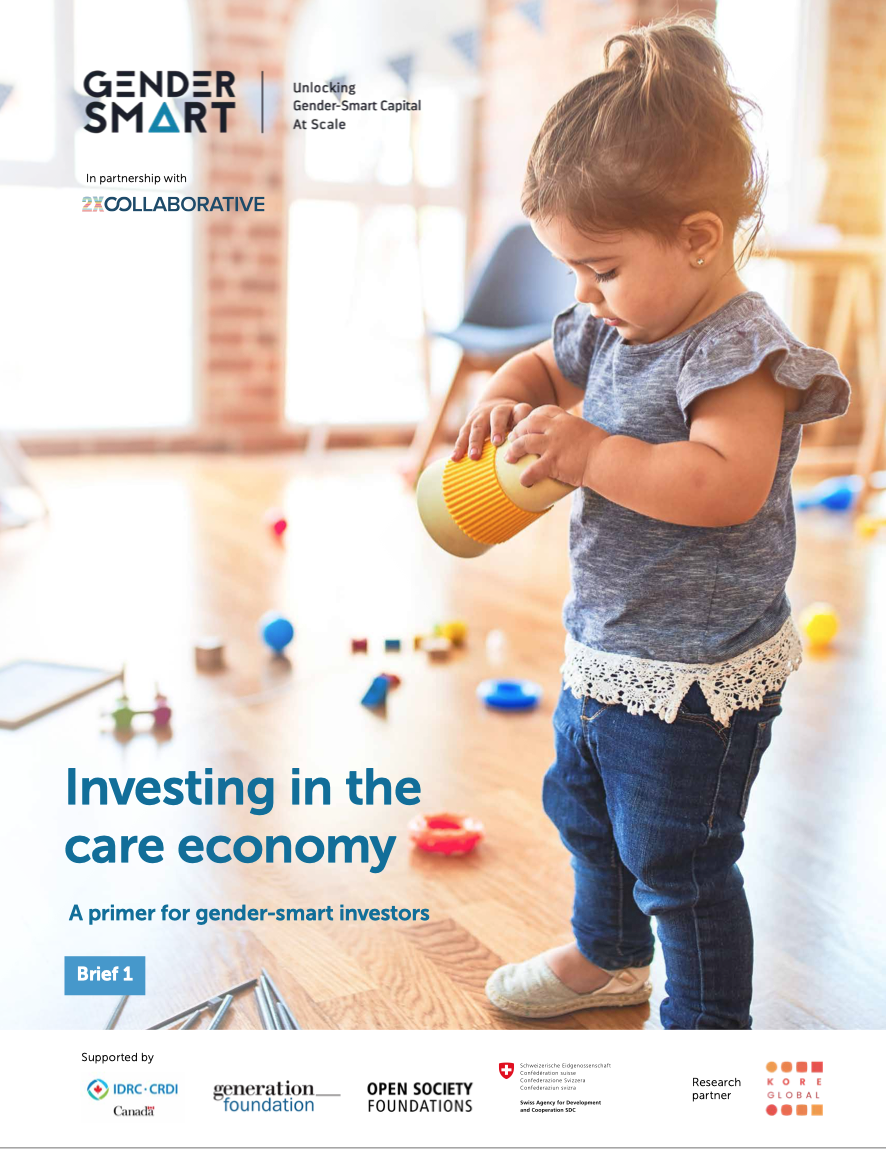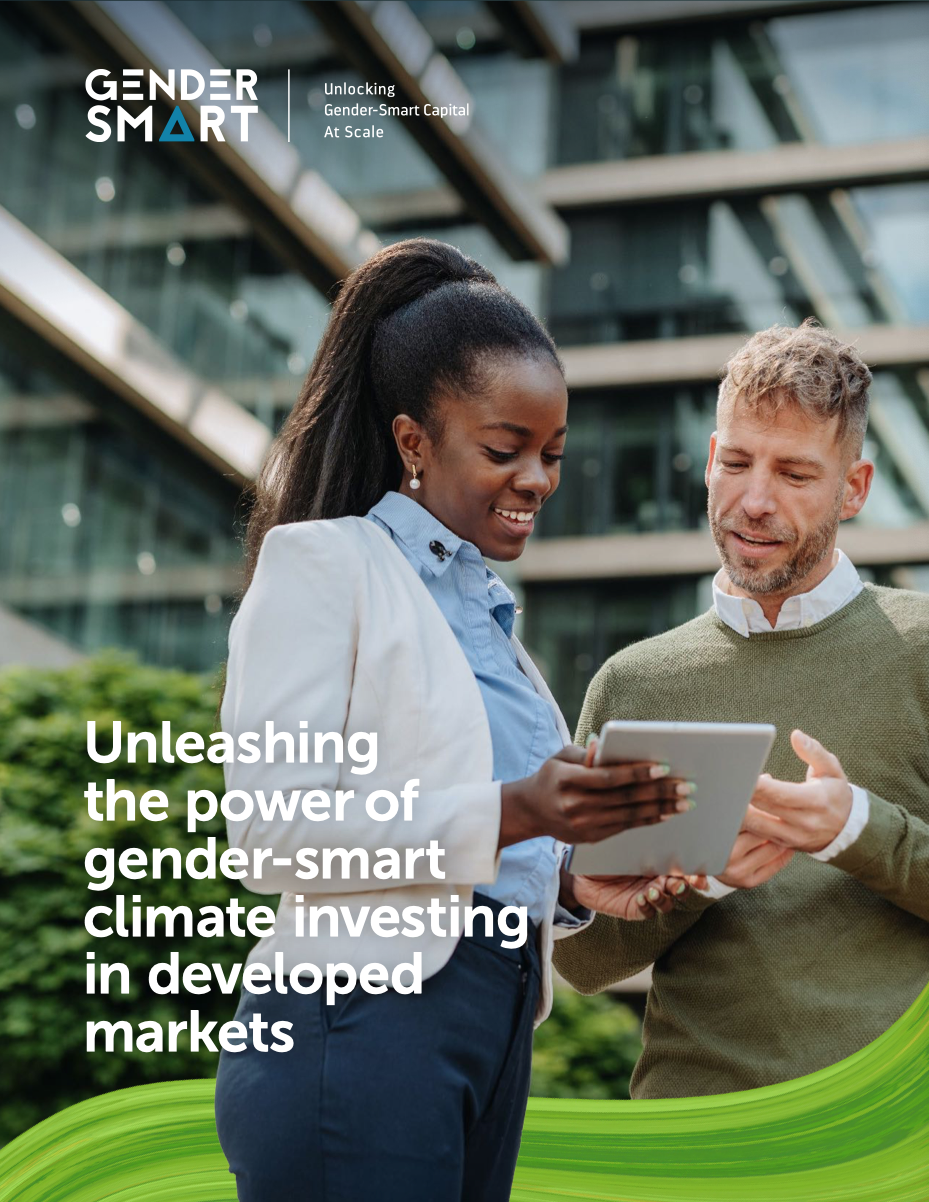Designing a Gender Lens Investing Action Plan
From Criterion Institute - Criterion Institute has created a tool that can be used by anyone looking to develop a gender lens investing strategy – from foundations, to women’s funds, to investors across asset classes. Following a standard investment cycle, this tool supports the design of an investment strategy with considerations for how gender dynamics might present risks and opportunities. It provides a framework to consider building a gender lens into new or existing strategies. This tool can be used to inform investment strategy or in diligence. Wherever you find yourself in your gender lens investing journey, we hope this tool helps expand imagination of what is possible in the field.
Gender Equality Mainstreaming Framework (GEM)
From MEDA - The Gender Equality Mainstreaming (GEM) Framework is a practical manual and toolkit for assessing gender equality, and identifying, implementing and measuring gender equality mainstreaming strategies within companies. The framework builds upon the environmental, social and governance (ESG) investment standard by mainstreaming gender across ESG criteria. This alignment with the ESG investment standard promotes adoption in an industry that is increasingly ESG-compliant.
Designed for organizations seeking financial and impact returns through investing or providing support to companies, the manual is applicable to a wide range of investors (e.g. private equity funds, government donors, foundations) and capacity builders (e.g. accelerators, technical assistance providers, NGOs).The ultimate aim of the framework is to transform companies to be more gender equitable while supporting business growth and impact.
Gender Analysis Toolkits
From Equilo - collection of gender analysis frameworks and tools.
Gender Equality Scorecard
From SEAF - This measurement mechanism is demonstrates that SEAF portfolio companies can provide appropriate financial returns and measurable impact, including women being economically empowered through investment and development activities.
Gender-Smart Investing Resource Hub
From ICRW - Learn how to better integrate gender into investment processes to make smarter investments that enhance returns, gender equality and women’s economic empowerment.
A Gender Lens on Pakistan's Startup Investment Landscape
From i2i Insights - Pakistan's startup ecosystem has rapidly developed in the past few years. Although currently experiencing an economic slowdown, the ecosystem’s stakeholders continue to demonstrate resilience and a forward-thinking approach.
WEDO - Discussion Paper: Gender Equality and Just Transition
From WEDO - Summary: A gender just transition must further take into account the role of women’s unpaid care work, particularly in developing countries, as well as women’s informal work, both of which in essence subsidize our current economic systems and are financially unrecognized or undervalued. The precariousness of women’s work is compounded by current trends such as seasonal and forced migration, the feminization of agricultural labor, the lack of formal recognition for women as farmers, the lack of health protections in the informal sector, the transportation of women in Qatar and the Arab peninsula, among others. Women entrepreneurs are also disproportionately represented in small enterprises, which have less access to credit and loans, and in the micro and small informal sector. As feminists in the labor movement denounce, while working conditions in general are poor in many industries, they are often worse for women.
W+ Standard White Paper - Carbon Markets and Gender Equality
From WOCAN and the W+ Advisory Council - This white paper posits that if we don’t address gender and climate jointly, we undermine both agendas. By integrating the two, we can amplify the impact of both. The cost of inaction is high. To reach the scale required for fast climate results, we cannot afford to exclude the knowledge, skills and networks of women by neglecting their contributions to tackle climate change, nor ignore the threats climate change poses to global gains in advancing gender equality and women’s empowerment.
Mainstreaming Gender in Green Climate Fund Projects
From Green Climate Fund (GCF) - This manual addresses GCF’s potential to mainstream gender into climate finance, building on its mandate to support a paradigm shift to low-emission and climate-resilient development. Developed with UN Women, this toolkit guides GCF partners on how to include women, girls, men, and boys from socially excluded and vulnerable communities in all aspects of climate finance.
ADB - Gender & Climate Finance Policy Brief
From Asian Development Bank - The paper highlights the need and demand for mitigation measures that tap women’s potential to contribute to emissions reductions and sustainable development.
Building Gender into Climate Finance: ADB Experience with the Climate Investment Funds
From Asian Development Bank - This publication confirms the shared commitment of ADB and the Climate Investment Funds (CIF) to mainstreaming gender equality in climate change and showcases how this priority is being integrated into the design of ADB’s CIF projects.
Inclusive gender and climate finance
Investing at the nexus of gender and climate finance has been evolving in recent years: from the development of new research and case studies that help make the case for this approach and illustrate its benefits, to the emergence of tools to support investors in adopting an integrated approach. Yet few of these examples and tools have engaged intentionally with the full breadth of intersections between climate action, gender and a broader inclusive and JEDI lens in the investment community. This guide is designed to help investors and investment intermediaries do just that.
Applying a Gender Lens to Climate Investing: An Action Framework
This Framework, developed by the Women in Finance Climate Action Group in partnership with Oliver Wyman, 2X Global and the 30% Club, is designed to help financial institutions to embed gender considerations into their climate investment decisions, to both mitigate the disproportionate impact of climate change on women and support women as change makers in the net zero transition. It is designed specifically for private institutional investors given the key role the play in financing the net zero transition. The framework provides practical guidance on target outcomes, key organisation and investment process changes, and metrics for gender-smart climate investing.
Engaging with the care economy: a guide for investors, employers, and corporate actors
In order to amplify the importance of the care economy, provide investors with an understanding, raise awareness and spotlight actionable roadmaps, the GenderSmart & 2X Collaborative Care Economy Working Group 16 commissioned two briefs. This second brief provides practical guidance to investors and employers on how to engage.
Investing in the care economy: a primer for gender-smart investors
In order to amplify the importance of the care economy, provide investors with an understanding, raise awareness and spotlight actionable roadmaps, the GenderSmart & 2X Collaborative Care Economy Working Group 16 commissioned two briefs. This first brief is a primer on what the care economy spans, what different business types are emerging and the breadth of the sector to set up the foundation for investing in the care economy.
Unleashing the power of gender-smart climate investing in developed markets
In the last few years, investors have begun to recognise the vast financial risks that climate change poses. Few investors, however, fully recognise the potential from integrating gender and climate lenses together in investments for long-term climate solutions. The following case studies illustrate the ‘what, why, why now and how’ of gender and climate investing in developed markets, and the opportunities that can arise from integrating both lenses
Development finance institutions and the care economy: opportunities for building more resilient and gender-equitable economies
Jessica Espinoza Trujano & Anne-Marie Lévesque (Journal of Sustainable Finance & Investment)- “Development finance institutions (DFIs) play a major role in mobilizing private sector investments in developing countries. While there has recently been an increasing interest among DFIs in gender-lens investing, these efforts have been somewhat blind to the question of women’s unpaid work and have not yet led to a stronger investment focus on the care economy. Adopting what has been defined by other feminist scholars as a transformative approach to care, this article analyses the potential transformative effects of private sector investments in the care economy by DFIs to help build more resilient and gender-equitable economies following the global COVID-19 pandemic. The authors find there is significant potential for DFIs to approach investments with a more strategic gender- and care-lens and contribute to the recognition, reduction, redistribution, reward, and representation of care work, in line with their objective to promote sustainable socioeconomic development in developing countries.”
Business and Social Outcomes of Gender-Smart Technical Assistance Activities in Small and Medium Enterprises
From Gender-Smart Enterprise Assistance Research Coalition (G-SEARCh)- “This research measured the effectiveness of seven types of TA provided to 21 SMEs across four sectors and three regions. The study confirms that TA activities contribute to positive business and social outcomes for companies and their stakeholders such as employees, customers, distributors, and producers.”
Childcare Solutions for Women Micro and Small Enterprises
By Donor Committee on Enterprise Development. Care work, in all its forms, is a critical social good. It is essential for the provisioning of society and provides the foundation upon which our market economies function. Most care work across the world is unpaid, and its distribution is strongly gendered: more than three-quarters of all unpaid care work globally is carried out by women. A growing body of research has explored the relationship between childcare and women’s economic empowerment in low- and middle-income countries (LMICs). The results suggest that childcare provision can improve women’s labour market outcomes across a number of measures, including employment, income, and transitioning from the informal to the formal sector. Based on these promising links, further research has sought to develop the ‘business case’ for care - focusing largely on two avenues: public investment in childcare provision and formal, employer-supported childcare. A ‘missing middle’ between these two well-documented models, of great relevance for development actors focused on promoting childcare solutions in LMICs, is about meeting the childcare needs of women micro and small enterprises (MSEs), including self-employed workers.
Proposals to Solve Gender Diversity Challenges in Japan’s Startup Ecosystem
This report from FSA Open Policy Lab summarises gender diversity challenges in Japan’s startup ecosystem based on 19 individual interviews, discussion at a workshop, data analysis and literature review conducted by the Open Policy Lab. Three main findings in this report are as follows: Firstly, Japan needs to overcome the persistent gender inequality in the management of listed companies. While numerous measures have been in force, female leaders of the newly listed companies account for only 2%. Secondly, gender diversity in the startup ecosystem is a critical agenda from economic perspectives. Lacking in gender diversity, male-dominant companies may suffer from a variety of losses, including the impact on profitability. Third, all stakeholders in the startup ecosystem should act now to change the status quo. Investment in startups has been on the rise. If current practices remain unchanged, existing distortions would likely be maintained or even strengthened.





